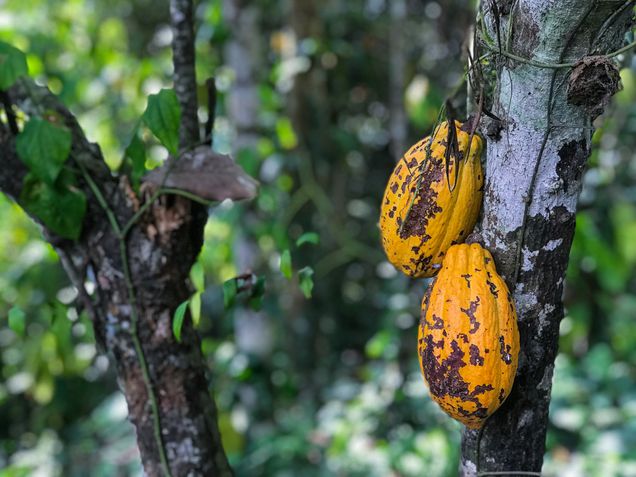Create Space for Indigenous Leadership to Preserve Agricultural Biodiversity

Indigenous peoples have bred crop varieties over centuries that are adapted to various climatic conditions. But genocide, land grabs and the Green Revolution have rendered many of these varieties lost forever. Despite all this, surviving indigenous communities have retained their traditional agricultural practices, knowledge and biodiversity. Indigenous knowledge strengthens global food security. In order to prepare our food systems for the climate crisis, we must learn from these indigenous knowledge bearers.
A working paper by Masha Vernik advocates for agricultural biodiversity and indigenous leadership to bolster food security. Because industrial food production wiped out many crop varieties, food systems must incorporate ancestral varieties to withstand threats posed by climate change. At the edge of the Ecuadorian Amazon, Kichwa chakras (traditional, biodiverse subsistence farms) persist. Kichwa farmers use chakras to grow food for their families and cacao for income. Contrary to popular belief, these subsistence crops and cash crops coexist. The author uses a survey of 21 chakras in Santa Rita to assess the impacts of intensified cacao production on the chakras’ biodiversity.
Key Findings:
- An Ecuadorian Kichwa community maintains their traditional agricultural system, the chakra, while incorporating cacao as a cash crop.
- High quality cacao that depends on the chakra generates revenue and achieves sustainable development goals.
- Institutions that partnered with indigenous leaders used a more holistic definition of the chakra than those that did not.
The author concludes that indigenous knowledge makes food systems more resilient. As COVID-19 reveals weaknesses in the global food system, many will turn to production practices that are less dependent on complex supply chains and more adapted to climate change. During this shift to regional and regenerative food systems, listening to the wisdom of indigenous people will be critical to foster agricultural biodiversity.
Read the Working Paper Leer en Español